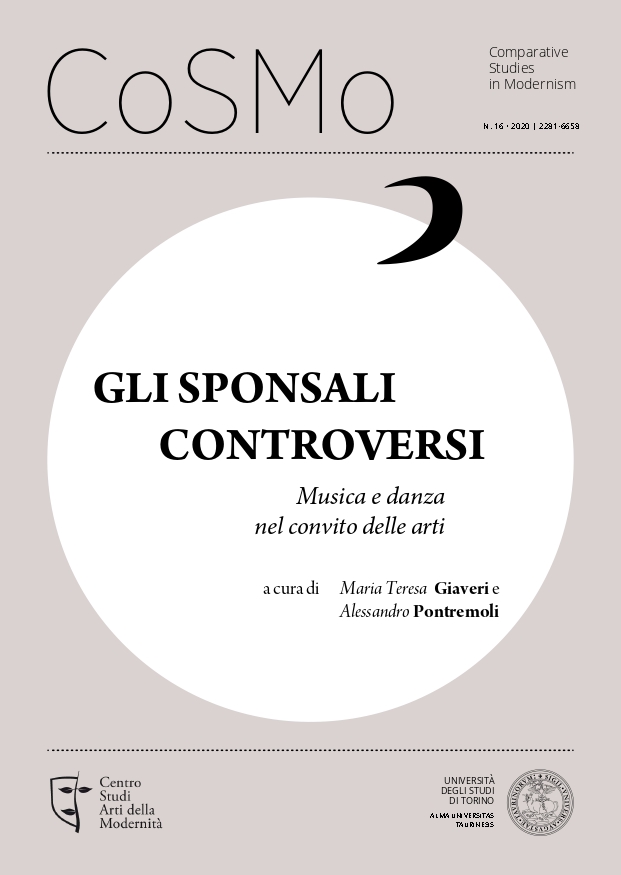Harmony in Motion: The Genesis of Rudolf Laban’s Free Dance and the Music and Art Rheories of His Time
DOI:
https://doi.org/10.13135/2281-6658/4612Keywords:
Modern dance, Harmony, Dissonance, Abstraction, Atonal Music, Choreutics, Movement NotationAbstract
This essay analyses the thought of Rudolf Laban (1879-1950), one of the most important theoreticians of free (modern) dance in the first half of the 20th century, and particularly the concept of harmony, which he explored in close connection with contemporary theories in music and painting. Although he never arrived at an overall and definitive formulation of the concept of harmony, it became the conceptual framework within which Laban developed his analysis of body movement exploring its dynamic, expressive, emotional and psychological nuances. These theories, scattered in fragmentary thoughts and in unpublished texts or published at different times and in different languages, marked a turning point in the conceptualization of the relationship between body, movement and space, and indicated the direction along which modern dance developed.
Downloads
Downloads
Published
Issue
Section
License
Authors keep the copyrights for their work and give the journal the work’s first publication copyright, which is at the same time licensed under a Creative Commons License – Attribution, which in turn allows other parties to share the work with an acknowledgement of the work's authorship and initial publication in this journal.
Content Licence

You are free to copy, distribute and transmit the work, and to adapt the work. You must attribute the work in the manner specified by the author or licensor (but not in any way that suggests that they endorse you or your use of the work).
Metadata licence

CoSMo published articles metadata are dedicated to the public domain by waiving all publisher's rights to the work worldwide under copyright law, including all related and neighboring rights, to the extent allowed by law.
You can copy, modify, distribute and perform the work, even for commercial purposes, all without asking permission.





